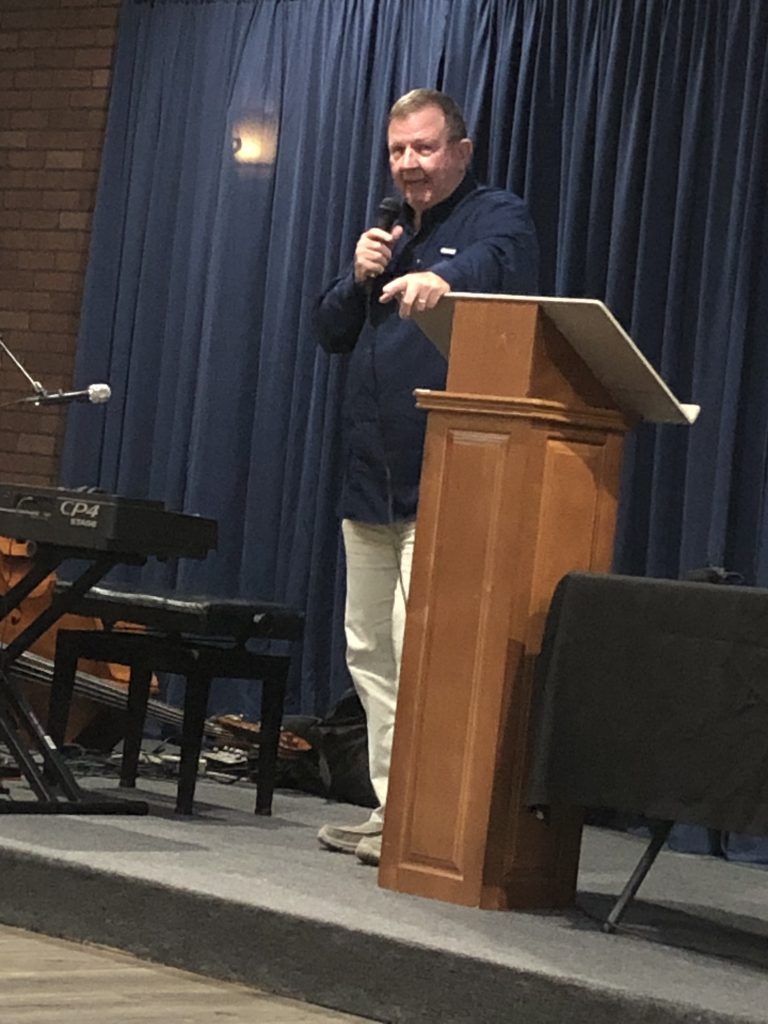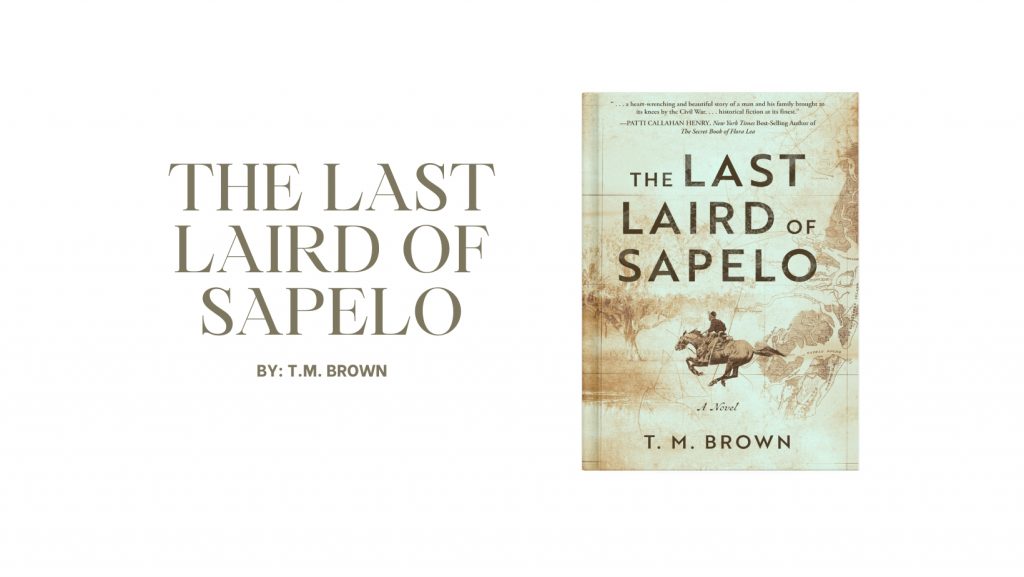Thanksgiving and Christmas is always a fantastic time of year. And it has been an exciting time for book sales, book awards, and book events for my historical novel, The Last Laird of Sapelo. Keep reading and discover the excerpt for what New Years Eve would have been like in Darien, Georgia as 1862 as rung in by troops awaiting orders to defend Savannah following the Union’s successful Port Royal Campaign and assault on Tybee Isalnd. Colonel Randolph Spalding traveled from visiting his family in Baldwin County and stopped in Darien before he headed to Savannah as the adjutant to General W. H. T. Walker, Commanding General in charge of Savannah’s defense.
Awards and Book News
Before sharing the excerpt, here’s exciting news: While waiting for an update on two other Historical Novel Awards where LLOS made the short-list, the Historical Novel Company announced their finalists for Best Historical Novels in 2023. LLOS received Honorable Mention in the General Historical Fiction Category.

General
Gold The Merchant of Sepharad James Hutson-Wiley
Silver The Last of What I Am Abigail Cutter
Bronze On the Wings of a Red-Tailed Hawk Gail Combs Oglesby
Honorable Mention The Last Laird of Sapelo T. M. Brown
Honorable Mention Oscar’s Tale Chris Bishop
T. M. Brown Author Events in 2024
To catch an upcoming book signing or presentation about the historical background in The Last Laird of Sapelo, visit the EVENTS TAB. Mike will begin his 2024 book calendar of events in February with several outstanding author events already scheduled. Subscribe to receive his new newsletters to follow his Facebook Page to learn of the latest events in 2024.

New Years Eve in Darien, Georgia, in 1862?
CHAPTER TWENTY-ONE
31st of December, 1861
On the last day of 1861, Colonel Spalding’s coach pulled into Darien. Randolph stepped down, placed his hat on his head, then looked up and down Broad Street. He struggled to recognize the once prosperous port city his family had helped build. Though the stage arrived in the middle of the day, just a handful of the shops and mercantile stores appeared open with many having shuttered their doors and windows.
Below Broad Street’s once bustling business district, dockworkers offloaded cargo from the lone merchant schooner moored alongside the city wharf. Most of the city’s prominent citizens had closed their businesses and moved their families far from the coast. Georgia’s second oldest town and vital port looked like a ghost town except for raucous droves of enlisted soldiers wandering in and out of the handful of establishments still open. The owners of the two taverns and the town’s lone open hotel welcomed the high-spirited young soldiers.
Boisterous singing caught Randolph’s ears. With his bag in one hand and his satchel in the other, he followed the sounds into the crowded watering hole he had visited many times in the past. Standing in the doorway, he noticed his nephew, Captain William Brailsford, hovering over the shoulder of the piano player, a nimble-fingered soldier with a first-rate, polished tenor voice. He entertained the roomful of soldiers, young and old, privates, corporals, sergeants, and officers of various other ranks.
William scrambled away from the piano as soon as he recognized 2 0 4
his uncle. A hearty laugh erupted from the center of his scraggly brown beard. “Welcome home, Uncle!” He embraced him in a bear hug.
“William, it’s nice to be back. What’s going on?”
“Ah, come and join us. I’ll buy you a drink. You look as though you could wash down the dust. We are all here to celebrate the coming new year when the South will finish the fight the North began this past year.”
William’s harsh growl cleared the way as Randolph followed in his wake, toting his bags to a table across the smoke-filled room. The piano player began playing “Dixie” once again. By the time William sat down beside Randolph, he sounded like a bear growling when he joined in on the final stanza. “In Dixie land, I’ll take my stand to live and die in Dixie. Away, away, away down South in Dixie. Away, away, away down South in Dixie.”
Major Levi Knight left his chair beside the roaring fireplace across the room as the music ended. “Colonel, I thought you’d still be enjoying a few extra days with your family. What brought you back to Darien? Last I heard, General Walker was in Savannah.”
“I’m just passing through to visit my brother before I pick up Zapala at his stable. I received word that soldiers in Sunbury arrested the third deserter, and he’s facing a court-martial in Savannah. What’s with all the soldiers being here?”
“We had a measles outbreak at Camp Spalding and lost a couple of young men right after you left. Colonel Alexander agreed to move the militia from the island. We moved all but a duty garrison that gets shuttled back and forth from Camp Security. From what we hear, General Lawton’s about to recall the entire regiment to Savannah. The Union took Tybee Island.”
Randolph leaned closer to Levi Knight as the music began again. “I heard. That’s another reason I left sooner than planned and am just passing through on my way to Savannah.”
“Randolph, listen to this song. You may like it.”
“What is it?”205
“It’s titled ‘The Bonnie Blue Flag.’”
After the tenor-voiced piano player sang a few bars, the clamorous chatter came to a prompt end. Every head turned and listened.
“We are a band of brothers, And native to the soil, Fighting for the property We gain’d by honest toil; And when our rights were threaten’d, The cry rose near and far, Hurrah for the Bonnie Blue Flag, that bears a Single Star!
Hurrah! Hurrah! for Southern Rights Hurrah! Hurrah! For the Bonnie Blue Flag, that bears a Single Star!
As long as the Union was faithful to her trust, Like friends and like brothers, kind were we and just; But now, when Northern treachery attempts our rights to mar, We hoist on high the Bonnie Blue Flag, that bears the Single Star.
Hurrah! Hurrah! for Southern Rights Hurrah! Hurrah! For the Bonnie Blue Flag, that bears a Single Star!”
An ear-to-ear smile spread across Randolph’s stubbly face as he listened to the lone highland lilt of the piano player accompanied by the roomful of spirited soldiers joining in with each chorus of hurrahs. As soon as the music subsided, he leaned closer to Levi Knight and said, “That song sums up well what instigated the North to start this war, and we just want to preserve our God-given rights. Yet, the big Northern newspapers continue to kowtow to the ardent cries of the highbrow abolitionists. Not one of these young soldiers has drawn his sword or fired his musket to preserve slavery. They left their homes, 2 0 6
their farms, their families, and rallied to the call of patriotism.”
Levi nodded. “I could not agree more. The North has staked this war upon something these brave young men have little stake in fighting over. Slavery’s not why the shooting began and bloodshed followed. This war started over the supreme and sacred right of self-government. The notion promoted by Northern abolitionists that Southerners would place their lives, fortunes, and their sacred honor in the balance for the sake of preserving slavery is absurd. These young farmers, merchants, and mill workers are sons, fathers, and husbands and have proven their willingness to endure the hardships of the march, extended tedious camp life, and the perils and slaughter of battle. Yet, I venture to say nary a one owns a slave back home.”
“They sing out of love for what they hold most dear, their God-given right to defend family and property. No different from you and me,” Randolph said.
Levi looked Randolph square in the eyes. “Would you ever free your negroes so they might live and work as they choose?”
“Yes, in time. I believe many of the planters already understand what my father professed years ago. Slavery and cotton are detrimental to the future of agricultural progress in the South. We cannot continue to risk our economic future on cotton alone. Allowing our negroes in due course to earn the right to self-determination for themselves and their families and to reap benefits from their hard labor is in the South’s best interest. Let’s be honest, Northern abolitionists shoved slavery into the headlines to justify the war, but it is a paper ruse.”
Randolph looked across the table at his nephew staring back with inquiring eyes. “Before you say anything you may regret, William, I know you understand what I am saying. Spalding blood runs through you, too. But, has the way you have treated, or should I dare say, mistreated, your servants and field hands helped you sleep well at night? Is their fear of you the deterrent you’re counting on? How many of your negroes have run off while you have been patrolling 207
the roads keeping an eye out for runaways and Yankee spies?”
The windows to Brailsford’s soul turned red. “Them good for nothin’ niggras of mine. Those who ran off weren’t worth chasing. As for sleeping well—” He placed his service revolver on the table. “They don’t fear me, Uncle. They fear this.”
Levi Knight shook his head as Charles, who had heard most of their fiery conversation, walked over and stood behind Brailsford. Levi then said, “He’s your nephew, Randolph.”
“He’s my nephew, too!” Charles laughed, his hands resting on William’s shoulders. “Randolph, I didn’t expect to see you for another day or so.”
“After I read your letter, I knew I had to head to Savannah straightaway. I’m merely passing through.”
“Major Knight, I suggest you and Captain Brailsford enjoy the rest of the afternoon singing and drinking. As for Captain Brailsford,” Charles tightened his grip on his nephew’s brawny shoulders, “he better not forget he needs to report back to camp by midnight. Major Knight, I’m glad to see your lads are making the most of this afternoon too.” Charles handed Levi a telegram from General Lawton in Savannah.
“He has ordered you to shut down Camp Spalding, remove all the artillery and munitions off the island, and be ready to march to Savannah within the week.”
“But, what about—” Randolph said.
“Come with me. We have no time to waste if you want to leave first thing in the morning,” Charles said, grabbing Randolph’s bag and clearing the way across the crowded room.
Want to READ more?

Visit here to order your own copy. Available in hardcover, paperback, and digital eBook.